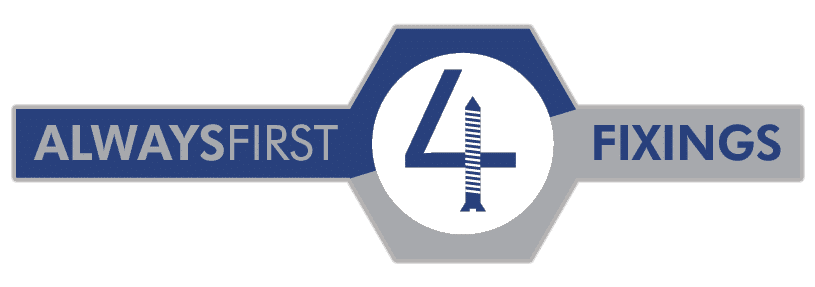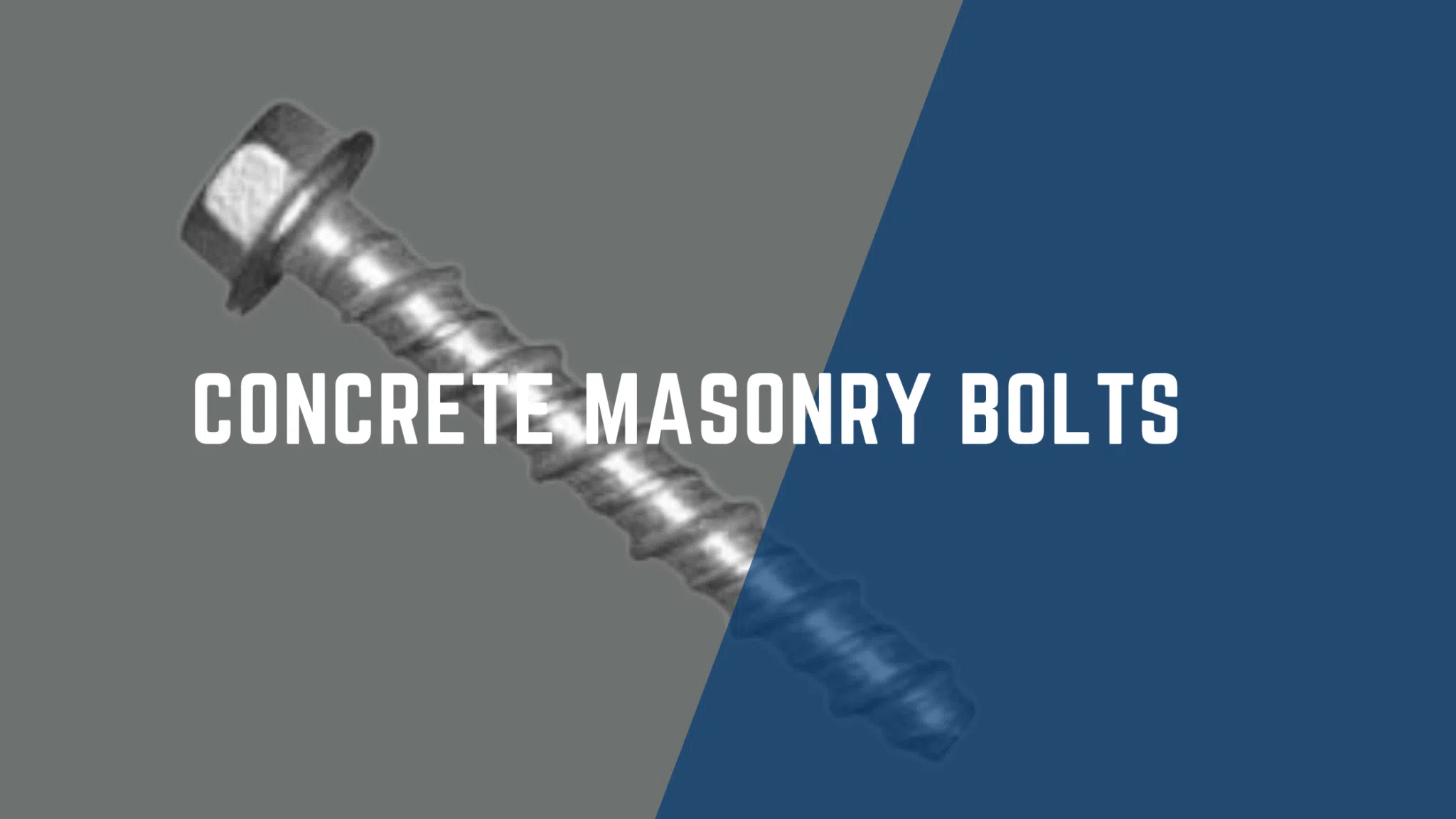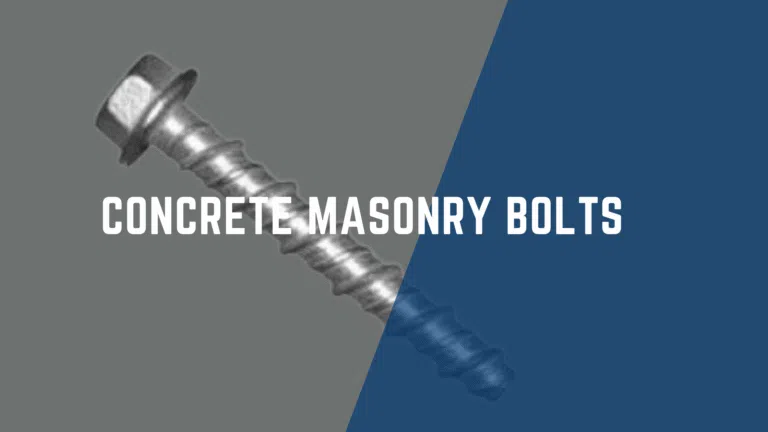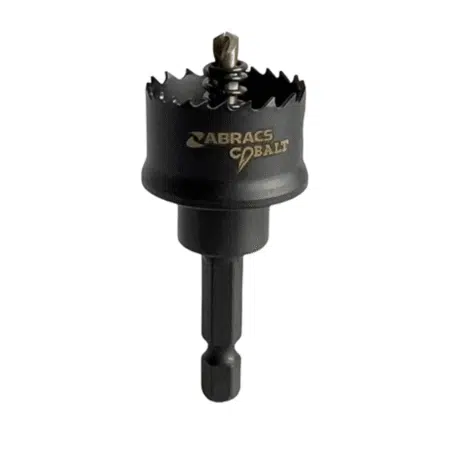You may be unaware that the use of not certified concrete masonry bolts can lead to serious risks and failures in construction projects. In this post, we will examine various case studies from the field that highlight the potential dangers and unexpected successes associated with these bolts. By understanding real-world applications and their outcomes, you can make informed decisions regarding your own projects and enhance the overall safety and integrity of your constructions. Moreover, recognizing the concrete masonry bolts importance is crucial for ensuring structural reliability and longevity. The case studies discussed will demonstrate not only the failures that can occur but also the benefits of using certified products in critical applications. By prioritizing the right materials, you can significantly mitigate risks and enhance the durability of your structures.
Key Takeaways:
- Case studies indicate that the application of non-certified concrete masonry bolts can lead to varying performance outcomes, highlighting the importance of assessing individual project requirements.
- Field experiences suggest that environmental factors, such as moisture and temperature variations, can significantly affect the integrity and longevity of non-certified bolts in concrete masonry applications.
- It is vital to conduct thorough inspections and maintenance routines to ensure the ongoing performance of non-certified bolts, as their reliability may not meet the standards of certified alternatives.
 The Unseen Risks of Non-Certified Concrete Masonry Bolts
The Unseen Risks of Non-Certified Concrete Masonry Bolts
Every decision in construction carries weight, yet the choice of non-certified concrete masonry bolts introduces significant risks. These seemingly benign fasteners can undermine the integrity of structures, leading to potential failures that may not be visible until it’s too late. The absence of certification often means inadequate testing and reliability standards, putting your safety and project quality in jeopardy.
Structural Integrity and Safety Hazards
Using non-certified concrete masonry bolts compromises structural integrity. These bolts may not meet the rigorous standards required for load-bearing applications, resulting in unpredicted failures under stress. For example, a construction project relying on these unreliable bolts faced a structural compromise, leading to costly repairs and endangered lives. In such instances, the overall safety of the structure is put at risk, and the repercussions can be far-reaching. This underscores concrete masonry bolts importance, as they are essential for ensuring that buildings can withstand the forces they encounter over time. Investing in certified materials is not just a matter of compliance, but a crucial decision for the longevity and reliability of construction projects.
Real-World Implications of Using Non-Certified Materials
The implications of using non-certified materials extend beyond immediate project costs; they encompass long-term structural risks that could lead to catastrophic failures. Consider the case of a high-rise building where non-certified masonry bolts were employed, leading to discovered weaknesses only after multiple incidents of cracked walls and alarmingly high maintenance calls. This real-world scenario highlights not just the risk of injury but also the financial burden of potential litigation and reconstruction.
The ramifications of utilising non-certified materials can prove devastating. Not only do you face the risk of structural collapse, but the financial repercussions are immense. In various instances, projects have incurred losses exceeding hundreds of thousands in repairs, coupled with legal consequences from safety violations. Your reputation could suffer if you’re tied to poorly built structures, as clients and stakeholders lose trust in your competence. In the end, the hidden costs of non-compliance reverberate far beyond the initial savings on materials.
Field Insights: Lessons from Improvised Solutions
Your experiences in the field can yield invaluable insights, especially when it comes to improvised solutions involving non-certified concrete masonry bolts. Often, these alternatives arise from necessity, driven by time constraints or budget limitations. You may find that these bolts sometimes offer short-term benefits, but they come with their own set of hazards. Assessing the performance of these bolts in real-world settings is imperative, as it highlights both the potential and the pitfalls of using non-certified hardware in structural applications.
Successes: When Non-Certified Bolts Worked
There are instances where non-certified concrete masonry bolts have performed remarkably well under specific conditions. Projects with lighter loads and minimal exposure to environmental stresses occasionally report satisfactory outcomes. In several cases, tradespeople have noted that these bolts sufficed in temporary structures or supporting non-critical installations, leading to customer satisfaction, even amidst the shrouded risks. You may find that proper installation, alongside thorough planning, can enhance their effectiveness, albeit temporarily.
Failures: Documented Cases of Structural Failures
Documented failures from the use of non-certified bolts paint a stark picture. Issues arise when these bolts experience unexpected shearing, pulling out, or corrosion, leading to devastating structural failures. Reports have indicated instances where poorly anchored machinery resulted in property damage and injury. These incidents serve as sobering reminders that the cost savings associated with non-certified bolts can lead to far more significant expenses, both financially and in terms of safety.
In one notable case, a non-certified bolt failed to hold a heavy overhead structure, leading to a major collapse that resulted in significant damage and multiple injuries. The structure, initially deemed stable, could not withstand the lateral forces exerted during routine operations. Post-incident inspections revealed extensive wear and insufficient load ratings for the selected bolts, emphasising the peril inherent in using unverified materials. This situation underscores the pressing need for adherence to certified standards, as non-compliance can have dire consequences for both safety and liability.
Critical Evaluations: Weighing Immediate Benefits Against Long-Term Consequences
Making a choice about using non-certified concrete masonry bolts often revolves around weighing short-term gains against potential long-term ramifications. You might be tempted by initial savings or availability but must acknowledge that the reliability of these bolts remains questionable. An inspection of past cases reveals instances where immediate cost benefits deteriorated into significant structural failures, underscoring that what’s convenient today may lead to costly consequences later. Investing in certified bolts, although potentially more costly upfront, can ensure structural integrity and peace of mind over time. Additionally, understanding how to use masonry bolts correctly is essential for maximizing their effectiveness, ensuring they are installed in a way that complies with safety standards. Ultimately, making informed decisions about these materials can prevent disastrous outcomes that compromise both safety and finances.
 Cost Considerations in the Short Run
Cost Considerations in the Short Run
Opting for non-certified bolts can seem financially appealing, as these products often come with a lower upfront cost. For projects with tight budgets or deadlines, skipping certification may appear to save time and resources. However, these apparent savings can quickly dissolve when one considers the long-term viability of your construction efforts.
The Potential Financial Burden of Future Repairs
Utilising non-certified bolts could result in costly repairs down the line. You may think the construction is solid at first, but issues will likely arise, demanding immediate attention. Case studies have shown projects experiencing bolt failures due to inadequate load-bearing capabilities often lead to catastrophic results, necessitating expensive remediation work.
The financial burden stemming from future repairs involves not just the costs of replacing faulty bolts but also potentially extensive structural damage. For example, a building failure can require not only the reinstallation of certified bolts but also the reinforcement or replacement of affected structures. In some cases, expenses have climbed into the tens of thousands, far exceeding any savings initially gained. Investing in certified concrete masonry bolts brings peace of mind, as you build with materials that meet industry standards, ultimately safeguarding your project from unforeseen costs.
The Push for Certification: Industry Perspectives on Safety Standards
In a landscape increasingly focused on safety, the push for certification in construction materials, particularly concrete masonry bolts, is gathering momentum. Industry professionals share a unanimous outlook: certified products not only enhance safety but also foster trust among stakeholders. As projects scale in complexity, the call for consistent standards is louder, exemplified by instances where non-certified bolts have led to catastrophic failures, shining a spotlight on the need for robust regulatory frameworks that champion safety above all else.
Why Certification Matters in Construction
Certification acts as a vital benchmark in construction, assuring you that the materials used meet established safety standards. Without this endorsement, the integrity of your project may be compromised, leading to costly repairs and potential hazards. Instances of non-certified materials have exposed vulnerabilities where structures have failed under stress, highlighting the indispensable role certification plays in safeguarding both life and investment.
The Role of Regulations in Preventing Poor Choices
Regulations serve as the backbone of safety in construction, providing a framework that discourages the use of substandard materials. They help create a market where only compliant products are available, pushing you to select safer options. These guidelines empower companies to invest in quality, ensuring that choices made today protect the longevity of the structures you build, aligning with both moral and legal obligations.
Adherence to regulations mitigates the risk of poor choices in construction, clearly defining what constitutes acceptable practices. For example, the introduction of mandatory testing and certification has dramatically reduced instances of structural failures attributed to inferior materials. Case studies show that projects incorporating certified products benefited from fewer safety incidents and lower insurance costs, ultimately proving that compliance not only elevates safety standards but also enhances the overall quality and reliability of your construction undertakings.
Building a Culture of Quality: Best Practices for Professionals
Fostering a culture of quality is necessary in ensuring that your construction projects meet both safety standards and client expectations. Emphasising reliability, attention to detail, and continuous improvement within your team facilitates better practices. Implementing regular quality assessments and encouraging open communication can significantly enhance overall project outcomes. When quality becomes part of the organisational ethos, each member takes personal responsibility for maintaining high standards, ultimately benefiting the entire project lifecycle.
Training and Awareness for the Workforce
Providing thorough training and increasing awareness among your workforce regarding the implications of non-certified concrete masonry bolts is vital. Incorporating workshops and ongoing education sessions ensures team members recognise the risks associated with sub-standard products. This knowledge empowers them to make informed decisions, resulting in a more proactive and responsible approach to project execution.
 Establishing Accountability within Teams
Establishing Accountability within Teams
Clearly defined roles and expectations are necessary to ensure accountability among your team members. By assigning specific tasks and responsibilities related to quality control, you encourage individuals to take ownership of their work. Regular check-ins and performance evaluations can help maintain focus and purpose, fostering an environment where everyone contributes to upholding quality standards.
Establishing accountability goes beyond mere task assignments. When team members understand how their roles directly impact project success, they become more engaged in delivering quality outcomes. For example, introducing a system where individuals report on their adherence to quality standards can motivate them to remain vigilant. Additionally, recognising and rewarding quality-focused behaviours reinforces the message that every contribution counts, creating a strong collective commitment to excellence in construction practices.
Final Words
Ultimately, understanding the implications of using non-certified concrete masonry bolts is important for ensuring the integrity of your construction projects. By analysing case studies from the field, you can gain valuable insights into potential risks and challenges. This knowledge empowers you to make informed decisions when selecting fasteners for your applications. You should always prioritise safety and performance, and utilise this information to enhance your practices in the field. Additionally, it’s essential to weigh the concrete masonry bolts advantages against the potential drawbacks of non-compliance with certification standards. These advantages can include improved tensile strength and durability, which are crucial in high-stress environments. By thoroughly evaluating these factors, you can ensure that your choice of fasteners not only meets regulatory requirements but also enhances the overall longevity and safety of your structures.
FAQ
Q: What are Concrete Masonry Bolts and why are they used?
A: Concrete masonry bolts are specialised fasteners designed for anchoring objects to concrete or masonry surfaces. They are widely used in construction and installation projects, offering strength and stability for securing fixtures, equipment, and structural elements in place. The unique design of these bolts allows them to grip the concrete securely, making them ideal for both permanent and temporary applications.
Q: What does it mean for Concrete Masonry Bolts to be ‘Not Certified’?
A: When Concrete Masonry Bolts are described as ‘Not Certified’, it indicates that they have not undergone third-party testing or certification processes commonly required by industry standards. While this does not necessarily compromise their utility or effectiveness, it means that users must exercise caution and consider the specific requirements of their projects, including load capacities and safety regulations. It is crucial for engineers and contractors to have a clear understanding of a concrete masonry bolts overview to ensure appropriate selection for their applications. Users should also be aware of alternative fasteners that may offer certified options, thereby meeting stricter compliance criteria. In doing so, they can enhance project safety while maintaining structural integrity.
Q: Can you provide examples of successful applications of Not Certified Concrete Masonry Bolts?
A: Yes, case studies have demonstrated various successful applications of Not Certified Concrete Masonry Bolts. For instance, in a commercial building project, contractors used these bolts to secure shelving units in a warehouse. Despite the bolts being not certified, they performed effectively under load and provided the necessary support for the units. Another instance involved the installation of outdoor signage on a concrete façade, where the bolts provided adequate anchoring without issues.
Q: What factors should be considered when using Not Certified Concrete Masonry Bolts in a project?
A: When using Not Certified Concrete Masonry Bolts, several factors should be considered, including the bolt’s material specifications, tensile strength, environmental exposure (such as moisture or chemicals), and the specifics of the application (such as load requirements and installation methods). Additionally, it’s important to evaluate the concrete or masonry condition to ensure adequate grip, and consulting with a structural engineer may be advisable for safety assurance. Furthermore, understanding the various types of concrete bolts available in the market can greatly enhance project outcomes. For those seeking comprehensive information on this topic, consulting the ultimate guide to concrete bolts can provide valuable insights into selecting the right fasteners for specific applications. Always prioritize safety and adhere to best practices to ensure proper installation and long-term performance. Furthermore, a thorough concrete masonry bolts overview can help in selecting the right type of bolt for specific applications. Understanding the various grades and classifications can also lead to enhanced durability and performance in different settings. Regular inspections and maintenance of the installed bolts may be necessary to ensure long-term reliability and safety. Furthermore, understanding the full range of concrete masonry bolts overview can aid in selecting the most appropriate fasteners for specific projects. It’s essential to familiarize oneself with industry standards and guidelines to ensure compliance with safety regulations. Proper training in installation techniques can also significantly enhance the performance and longevity of these fasteners.
Q: Are there any known risks associated with using Not Certified Concrete Masonry Bolts?
A: While Not Certified Concrete Masonry Bolts can be effective, there are potential risks associated with their use. Without certification, there may be uncertainties regarding their performance under specific loads or conditions. Improper installation or using inappropriate bolts for the application can lead to failures. It is necessary to ascertain that the chosen bolts meet the project’s needs and to follow best practices during installation to mitigate any risks. Additionally, a thorough understanding of the properties and limitations of Not Certified Concrete Masonry Bolts is essential for making informed choices. For a comprehensive concrete masonry bolts overview, it’s important to consider factors such as load capacity, environmental exposure, and compatibility with the masonry material. Ensuring these elements are addressed can significantly enhance the reliability and safety of the installation.


 The Unseen Risks of Non-Certified Concrete Masonry Bolts
The Unseen Risks of Non-Certified Concrete Masonry Bolts Cost Considerations in the Short Run
Cost Considerations in the Short Run Establishing Accountability within Teams
Establishing Accountability within Teams




